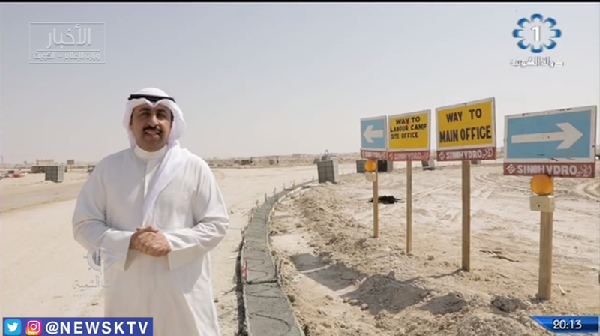
On Dec 20, Kuwait TV 1 Channel reported on the anti-COVID-19 pandemic measures and stable production work of the Kuwait T1158 infrastructure project undertaken by POWERCHINA.
This news coverage demonstrates the Kuwaiti government and media's recognition and support for the projects undertaken by POWERCHINA.
 |
|
Kuwait TV 1 Channel reports on Dec 20 on the anti-pandemic measures and stable production work of the Kuwait T1158 infrastructure project undertaken by POWERCHINA. [Photo/POWERCHINA] |
The report introduced in detail the measures taken by POWERCHINA to address the various problems and challenges that have been encountered during the construction process. It also highlighted the company's steps to ensure that COVID-19 prevention and control measures are in place.
During the pandemic, most projects in Kuwait have been in a state of suspension. Still, under the management of POWERCHINA and the project's owner, the T1158 project achieved closed control of the project department and implemented various disease prevention measures, ensuring the safety and health of project personnel.
The project department also coordinated operations and integrated resources to overcome the human and material challenges imposed on the project due to the pandemic and ensure the development was completed as planned.
The Kuwait T1158 infrastructure project is located 15 kilometers south of the No 70 expressway in Al Jahra province.
More than 1,250 foreign employees are currently working on the project, most of who are from developing countries and regions such as India, Pakistan, Palestine, the Philippines, Sri Lanka, Egypt and Malaysia.
As a housing security project of the Public Authority for Housing Welfare of Kuwait, the development has attracted considerable attention from local people. It will be used to resettle people in the two regions of Taima and Al-Sulaibiya.
After completion, it will solve the housing and resettlement problems of tens of thousands of immigrants to Kuwait.